Hague and Brown clash over 'English votes for English laws'
- Published
- comments
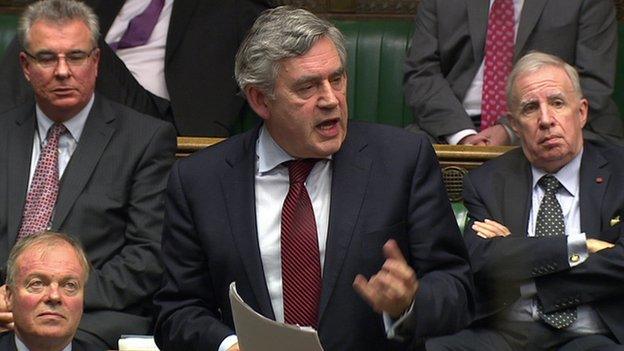
The former prime minister warned that English-only votes at Westminster could undermine the union
William Hague and Gordon Brown have clashed in the Commons over calls for "English votes for English laws".
In a debate on devolution, Mr Hague said the "legitimate expectations" of the English people must be recognised when more powers are given to Scotland.
But the ex-Labour PM said "crude" Tory plans risked undermining the UK in the wake of the Scottish referendum.
Labour has said it will boycott a body set up by the Conservatives to examine the role of English MPs in Parliament.
Leader of the House of Commons William Hague tells MPs "the vow" on further devolved powers for Scotland "will be delivered whatever our deliberations about England"
The Commons was discussing the Scottish referendum last month which saw 55% vote 'No' to independence, and the pledge by David Cameron, Ed Miliband and Nick Clegg in the final week of the campaign to devolve substantial new powers - including over taxation and welfare - to Scotland if there was a 'No' vote.
Following the referendum, Mr Cameron vowed to give tax-raising powers to the Scottish Parliament but also urged moves "in tandem" to restrict Scottish MPs from voting on English matters.
Labour is opposed to this, instead favouring more devolution within England. It also says such fundamental decisions should be delayed until after the 2015 election for consideration as part of a wide-ranging constitutional review.
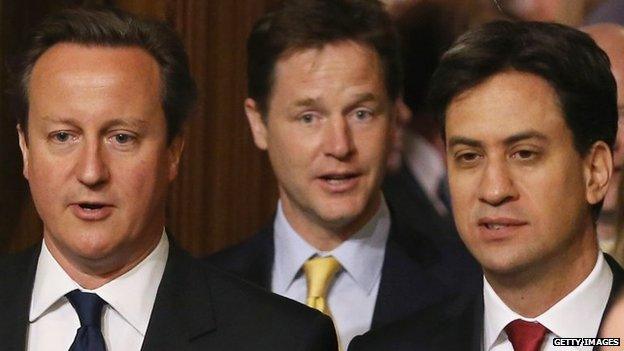
David Cameron, Nick Clegg and Ed Miliband all pledged support for more powers for Scotland
It is boycotting a commission chaired by Mr Hague, the leader of the House of Commons, looking into whether Scottish, Welsh and Northern Irish MPs should be stopped from voting on matters exclusively affecting England or whether English MPs should be given an enhanced role in the legislative process.
Speaking in the Commons, Mr Brown said there was "common ground" between the unionist parties on the extent of powers to be transferred to Scotland and the speed at which it would happen.
But he said the idea of English votes for English laws had been "imposed" by David Cameron after the referendum result and Scottish MPs must sit in the UK Parliament on "equal terms".
Warning that "nations can collapse by accident", Mr Brown, whose Kirkcaldy constituency is in Scotland, said excluding MPs from non-English constituencies from some votes would erode the "stability and harmony of the British constitution".
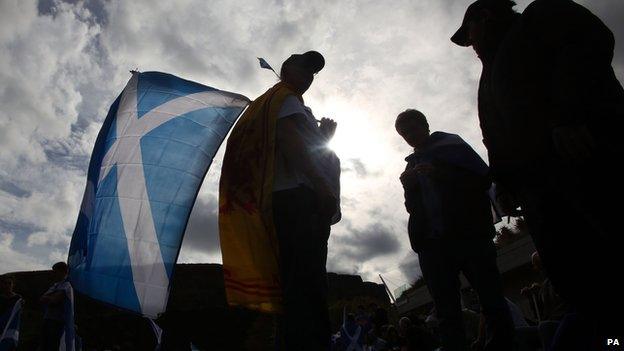
Scotland voted 'No' to independence in the referendum
"You cannot have one UK if you have two separate classes of MP," he said. "You cannot have representatives elected by the people who are half in and half out of the law making process."
But Mr Hague said politicians had been seeking an answer to the so-called West Lothian Question for nearly 20 years and he dismissed claims that "fairness for England was disruptive or dangerous to the UK".
Following the Scottish public's "clear decision", he argued, there was a "palpable need for renewal" of the UK's constitutional arrangements without "dither or delay".
While it was vitally important to "cement" Scotland within the UK, he said a "balanced settlement which is both fair and better to the whole of the UK" was just as necessary.
"The United Kingdom is in greater danger if the legitimate arguments and expectations of English decision making, on decisions effecting only England, are not responded to," he said.
'No confidence'
The Conservatives are preparing to stage a Commons vote on the issue before the end of the year.
Pete Wishart says English devolution is an "inconsequential issue" to Scottish voters
Labour MP Simon Danczuk and Tory MP John Redwood on plans for English devolution and an English Parliament
Backbencher John Redwood has suggested his proposal to give English MPs - the majority of which are currently Conservative - the final say over income tax rates in England, in parallel with handing Holyrood control over income tax in Scotland, could be passed without the support of either the Labour or Lib Dem leadership.
The Lib Dems have said they will take part in discussions but any solution must "reflect the will of the voters" and not be "politically motivated".
Constitutional historian Professor Vernon Bogdanor said there was an "English problem that needs answering" but was complicated by the fact England was such a "dominant" force and decisions on English-only matters inevitably had knock-on effects for Scotland, Wales and Northern Ireland.
'No reneging'
With no consensus in Westminster over the issue, the SNP has warned that the commitment to agree, in principle, the parameters of further Scottish devolution before next May may not be met.
The government published a Scottish devolution paper on Monday, work which will be taken forward by a commission headed by Lord Smith of Kelvin.
Angus Robertson, the SNP's leader in Westminster, said this process was now being "sidetracked" while his colleague Pete Wishart said both Yes and No voters in the referendum would be "appalled" at what was taking place.
"We thought we would have exclusive attention when it came to the referendum, the solemn vow, the promise, the guarantee of more and extensive new powers for Scotland," he said.
However, Liberal Democrat Scottish Secretary Alistair Carmichael said the government was already delivering on the Westminster leaders' vow, with the Smith Commission up and running and a paper published more than two weeks ahead of schedule.
Closing the Commons debate, Mr Carmichael said: "It is worth remembering that four short weeks ago, the future of our United Kingdom was at stake. The referendum was won decisively and it is a positive outcome.
"Moving forward, we need a sustainable constitutional settlement that meets the wishes of the people of our nations and the clear commitments that we have given."
- Published14 October 2014
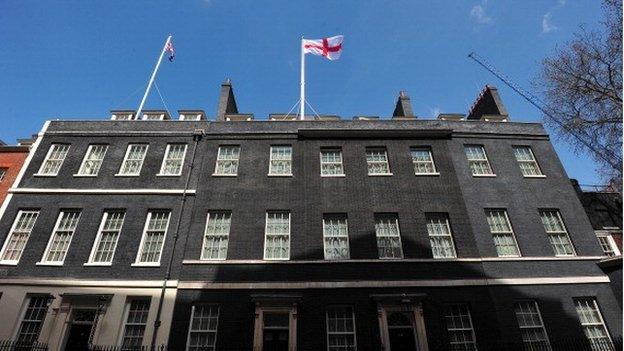
- Published3 February 2015
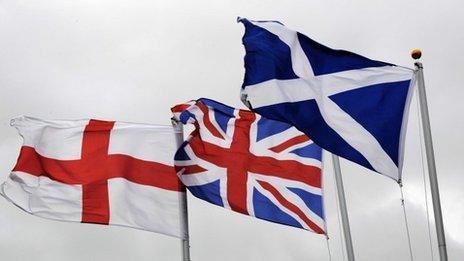
- Published1 October 2014
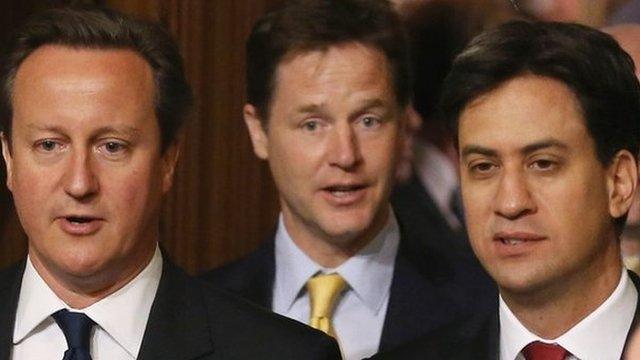
- Published8 October 2014
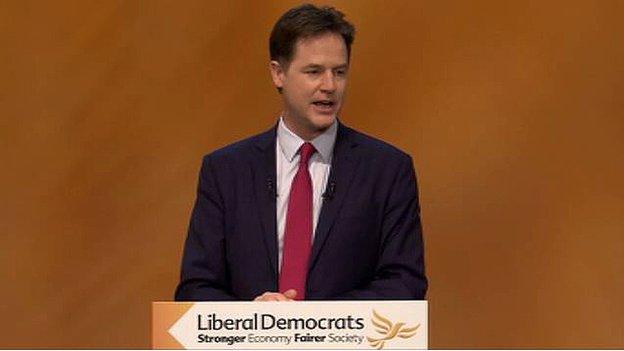
- Published22 September 2014
